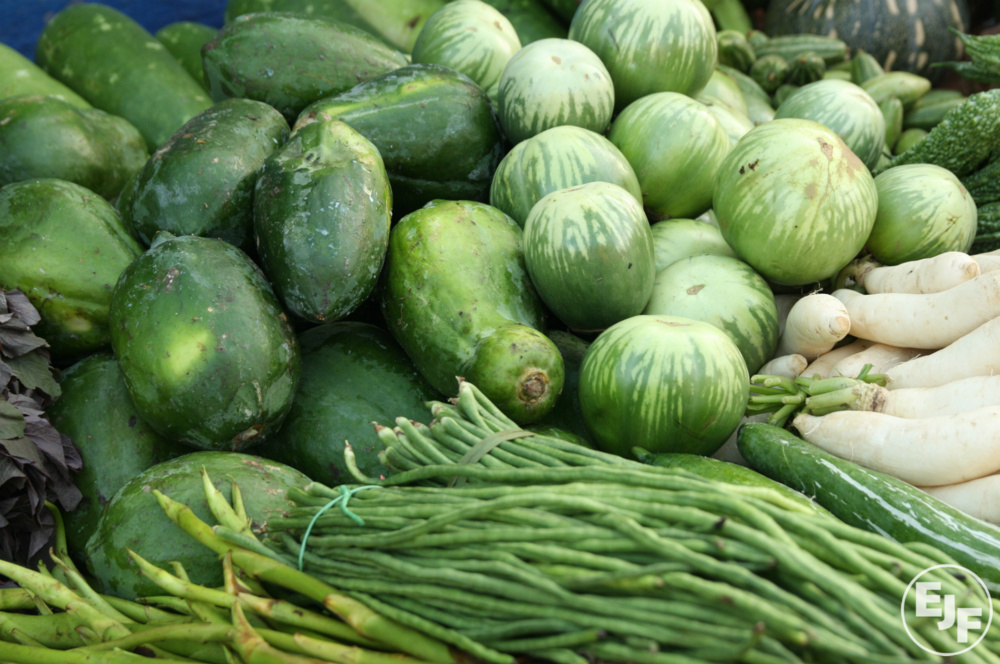
EJF is going plastic free
Plastic pollution is the theme of this year’s World Environment Day. To mark this occasion and show our support, the EJF office will now be free of single use plastic.
We will be sharing the successes, the challenges, and the surprises as we progress, and hope that others will learn from us and take on the challenge themselves.
Tackling plastic pollution means supermarkets and food manufacturers will have to take responsibility, but everyone can help to demand this change. The power of campaigning has already resulted in announcements that Iceland will be plastic free by 2020, and The Co-operative will be getting rid of plastic in tea bags.
Despite pronouncing themselves committed to safeguarding the environment, the UK Government’s 25 year environment plan has been criticised because it lacks solid or ambitious plans to tackle plastic waste. This makes it even more important that as consumers we show that we are willing to put in the effort to avoid contributing to what we can all agree is an urgent challenge.
EJF staff will be exploring the challenges and opportunities that come with cutting out single-use plastic, and sharing what we have learnt.
Starting in the UK office in London, we’ll be working together to eradicate single-use plastic from our offices and operations around the world.
We are committed to creating a world without the astonishing and unforgivable waste of single use plastics; to creating a sustainable, circular economy that can provide for all, while protecting our planet, it’s wildlife, wild places and people.
The problem with plastic
Almost 12 million tons of plastic enter our oceans each year, causing havoc on ocean wildlife and ultimately ending up in the seafood we eat.
Plastic now pollutes every corner of the earth. Plastic is incredibly durable and can stay in the environment as micro-pieces for hundreds of years. It is then increasingly found in the stomachs of birds, fish and mammals.
A third of UK-caught fish, including cod, haddock, mackerel and shellfish, contain plastic. It is estimated that shellfish lovers are consuming up to 11,000 tiny pieces of plastic each year.
Our bodies can only absorb around 1% of plastic fragments, meaning these materials accumulate over time. The chemicals in plastic have been linked to a potential increase in human health risks, including cancer, diabetes and fertility problems.
Plastic free shopping
Plastic is everywhere. It is increasingly difficult to buy fruit, vegetables, cakes and sweets without buying plastic too.
But it is a challenge that we believe will be rewarding, for the planet and ourselves. We are looking forward to sharing with you the innovative solutions we find to avoid buying plastics with our lunch.
- Sign up to our mailing list to keep up to date with our plastic free challenge
- Join us! Follow us on Instagram and share your photos
SIGN UP FOR OUR EMAILS AND STAY UP TO DATE WITH EJF